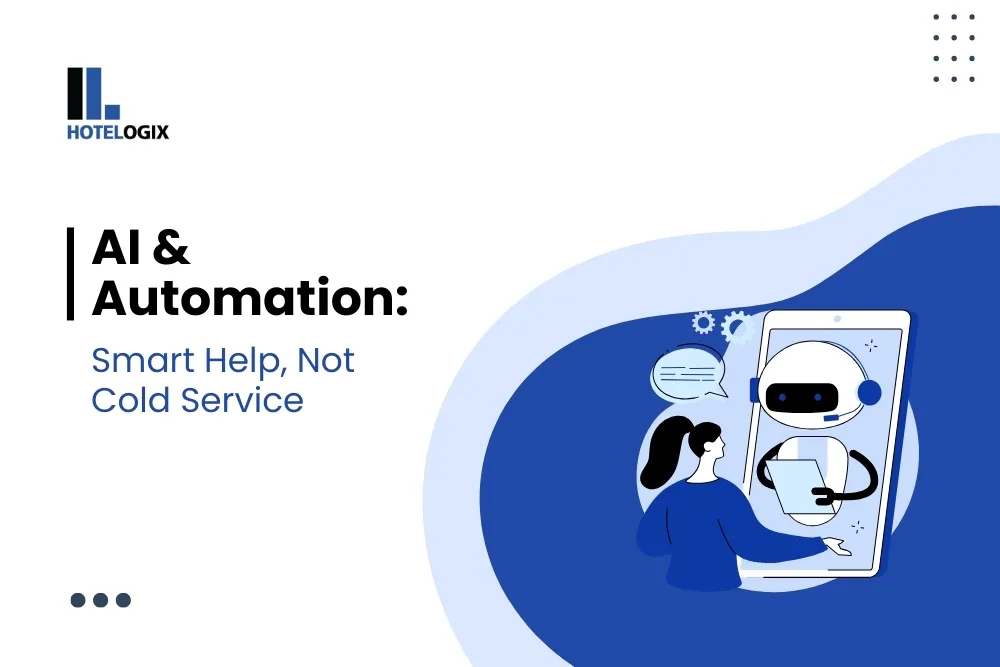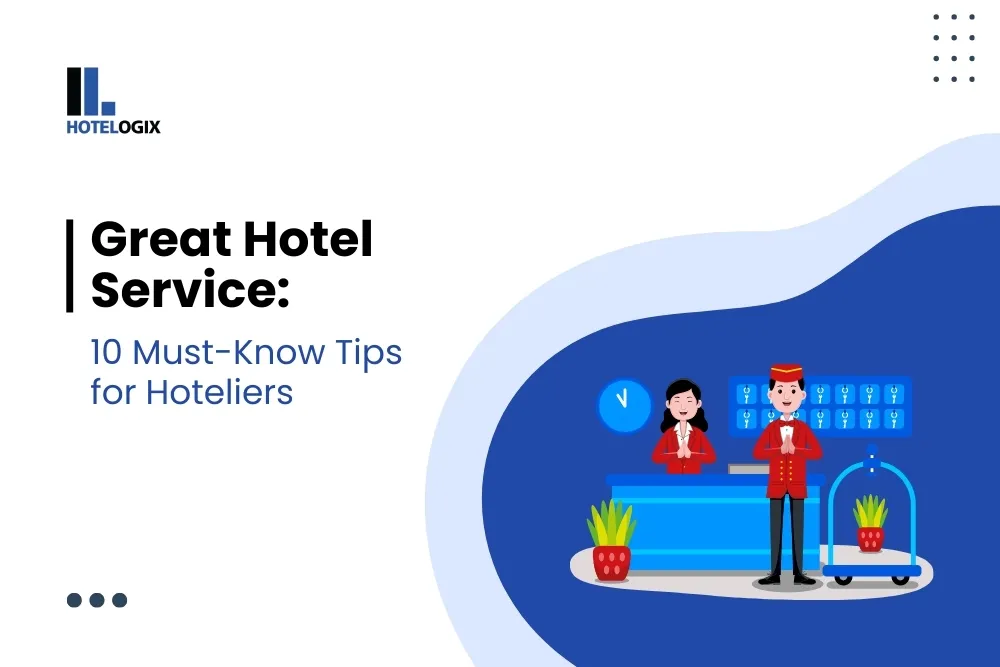Does Your Hotel Feel Personal or Just Functional?
A guest walks into a hotel after a long journey. They expect a smooth check-in, a cozy room, and maybe a warm smile from the front desk. Instead, they fumble with a self-service kiosk, receive a generic welcome email, and struggle to get a quick response from a chatbot. Efficient? Yes. Memorable? Hardly.
In the hospitality industry, service isn’t just about function—it’s about feeling. The best hotels use technology to enhance guest experience, not replace human warmth. But where do we draw the line between efficiency and engagement? This article explores how hoteliers can leverage technology to offer seamless yet personalized experiences that leave guests eager to return.
A traveler arrives at a well-known five-star hotel, expecting comfort after a grueling 12-hour flight. Instead of a warm welcome at the front desk, they are directed to a self-check-in kiosk. A chatbot flashes a standard greeting on their phone. There’s no human interaction—just a sleek, silent, digital process.
The check-in is fast. The room is ready. But the experience? Forgettable.
For years, hospitality was built on human warmth and connection. But in the rush to digitize, many hotels have unknowingly erased the personal moments that make a guest’s stay memorable.
Technology is not the problem—how hotels implement it is.
This article explores how to use technology as an enabler, not a replacement, to enhance guest experiences. Learn how modern hotels balance efficiency and personal service, using cloud solutions, AI, automation, and mobile tech—without losing the human essence of hospitality.
The Role of Technology in Enhancing Guest Experience
Hospitality is built on recognition, warmth, and service—qualities no AI, no matter how advanced, can replicate.
However, guests today also demand efficiency. They want to skip long lines, book services instantly, and receive personalized experiences without delays.
Common mistakes hotels make with technology:
- Over-automation: Guests feel they are interacting with machines instead of people.
- Lack of balance: Either too much tech (robotic experiences) or too little (slow service).
- No emotional connection: Digital processes can feel sterile and impersonal.
How technology should be used in hospitality:
✔ Remove friction, not human interaction.
✔ Let staff focus on relationship-building by automating repetitive tasks.
✔ Use AI and data to enhance personalization, not replace staff recommendations.
Psychological Trigger: The “Feeling Seen” Effect
Humans crave recognition. When a hotel remembers a guest’s name, preferences, or past visits, it creates an emotional bond.
Key Takeaway: Technology should empower hotel staff to provide better service, not remove the human connection.
Cloud-Based Solutions: The Backbone of Hospitality’s Future
The hospitality industry is evolving fast, and cloud-based solutions are at the heart of this transformation.
Market Insight: According to Straits Research, the global hotel management software market was valued at $3.43 billion in 2024 and is projected to reach $6.76 billion by 2033, growing at 6.51% CAGR.
✔ Real-time data access: Instantly update reservations, room availability, and guest preferences.
✔ Scalability: Whether you run a small boutique hotel or a global chain, cloud-based systems adjust to your needs.
✔ Lower costs: No expensive on-premise IT infrastructure, reducing operational expenses.
Cloud-based technology allows hotels to work smarter, respond faster, and focus on guest experience rather than administrative hassles.
Mobile Accessibility: Giving Guests Control at Their Fingertips
No one enjoys waiting in line at check-in. In a world where people can order food, book flights, and pay bills with a tap on their phone, standing at a reception desk filling out forms feels outdated.
Hotels that embrace mobile accessibility allow guests to manage their entire stay through their smartphones. Instead of fumbling with paperwork or waiting for staff, they can check in, choose their room, request services, and even unlock their doors—all in a matter of seconds.
This shift isn’t just about convenience. It’s about empowering guests to control their experience on their own terms. A tired business traveler arriving at midnight doesn’t have to stand at the front desk. A family with young kids can go straight to their room without delays. A guest needing extra towels can request them instantly instead of calling and waiting on hold.
But here’s where many hotels get it wrong: technology should offer convenience, not isolation. A great hotel never replaces the option of human service. Guests should always have the choice to speak to a friendly face if they prefer. The best hotels use mobile technology to give guests more control while keeping their staff available for real human interactions.
People don’t want to feel like they’re staying in a self-service building. They want options—the ability to do things quickly when they’re in a hurry, but also to interact with caring staff when they need help. Hotels that strike this balance will always stand out.
Personalization: Making Every Guest Feel Special
There’s a reason people return to their favorite hotels again and again—it’s not just about the rooms or amenities, but how they’re made to feel. A returning guest who arrives to find their favorite tea waiting in the room, the same pillow they requested on their last visit, or a personal note from the manager, feels valued.
This level of personalization was once only possible through highly trained staff who remembered frequent guests. But today, technology makes it easier for hotels to offer tailored experiences to every visitor, whether it’s their first stay or their tenth.
AI-powered systems can track guest preferences—room temperature settings, dietary restrictions, spa bookings, or even preferred check-in times. When a guest books again, the system ensures their favorite settings are ready before they even arrive. If they always request a quiet corner room, they don’t have to ask every time. If they enjoy a particular wine, they might receive a personalized offer at check-in.
But the key to personalization isn’t just data—it’s authenticity. No one wants to feel like they’re being marketed to by an algorithm. The best hotels use technology to enable human connections, not replace them. A personal touch, like a handwritten welcome note or a friendly concierge who remembers past visits, makes all the difference.
A guest should feel like they’re more than just a room number. The hotels that master personalization turn one-time visitors into lifelong guests.
AI & Automation: Smart Help, Not Cold Service
When people hear about AI in hotels, they often picture robot butlers or digital-only experiences. But AI isn’t about making hotels less personal—it’s about removing friction and making service better.

One of the biggest frustrations for guests is waiting—waiting for rooms to be cleaned, waiting for service requests, waiting for responses. AI helps by making operations smoother behind the scenes. Housekeeping schedules can be optimized, maintenance needs predicted before issues arise, and guest requests handled instantly.
AI-powered pricing systems ensure that room rates adjust dynamically based on demand, just like airline tickets. This means hotels stay competitive without constantly monitoring and adjusting prices manually.
Chatbots and virtual assistants also improve guest service by handling simple requests instantly. A guest wondering about pool hours or Wi-Fi passwords doesn’t need to call reception—they get answers in seconds through AI-powered messaging. This frees up hotel staff to focus on meaningful interactions, rather than answering repetitive questions all day.
The key is balance. AI should never replace human service—it should enhance it. When hotels automate routine tasks, staff have more time for genuine hospitality—greeting guests warmly, solving problems quickly, and making every stay feel personal.
A guest should never feel like they’re talking to a machine when they need help. The best hotels use AI to make life easier, not colder.
The Future of Hospitality: Keeping It Human
The hotels that will thrive in the future aren’t the ones piling on the most tech—they’re the ones using it the right way.
Technology should make things easier, not strip away the warmth that makes a stay special. The best guest experiences will always be about people—the concierge who gives great restaurant recommendations, the staff who remember a returning guest’s name, the small touches that make a stay feel personal.
The best hotels of the future will:
- Use technology to remove guest frustrations—no more long waits, no more inefficiencies.
- Give guests control through mobile tools but keep human service available.
- Make every guest feel like a VIP with personalized service powered by smart data.
- Automate what doesn’t require a human touch, so staff can focus on what does.
At the end of the day, guests won’t remember how fast check-in was—they’ll remember how the hotel made them feel. A warm greeting, a thoughtful touch, and a service experience that feels effortless and personal will always win over guests.
Hotels that understand this balance will not only survive in a tech-driven world but stand out as leaders in the industry.
Final Thought: The Hotels That Will Win the Future
Guests don’t want a hotel that’s just fast and efficient—they want one that feels right.
The best hotels don’t just use technology for the sake of innovation—they use it to create smoother, more human experiences.
The future of hospitality isn’t about replacing people with machines. It’s about giving guests control, removing frustrations, and making every stay feel effortless and personalized.
A guest should leave thinking: "That was the easiest, most enjoyable hotel stay I’ve had. I’ll definitely be back."
And that? That’s what great hospitality is all about.





